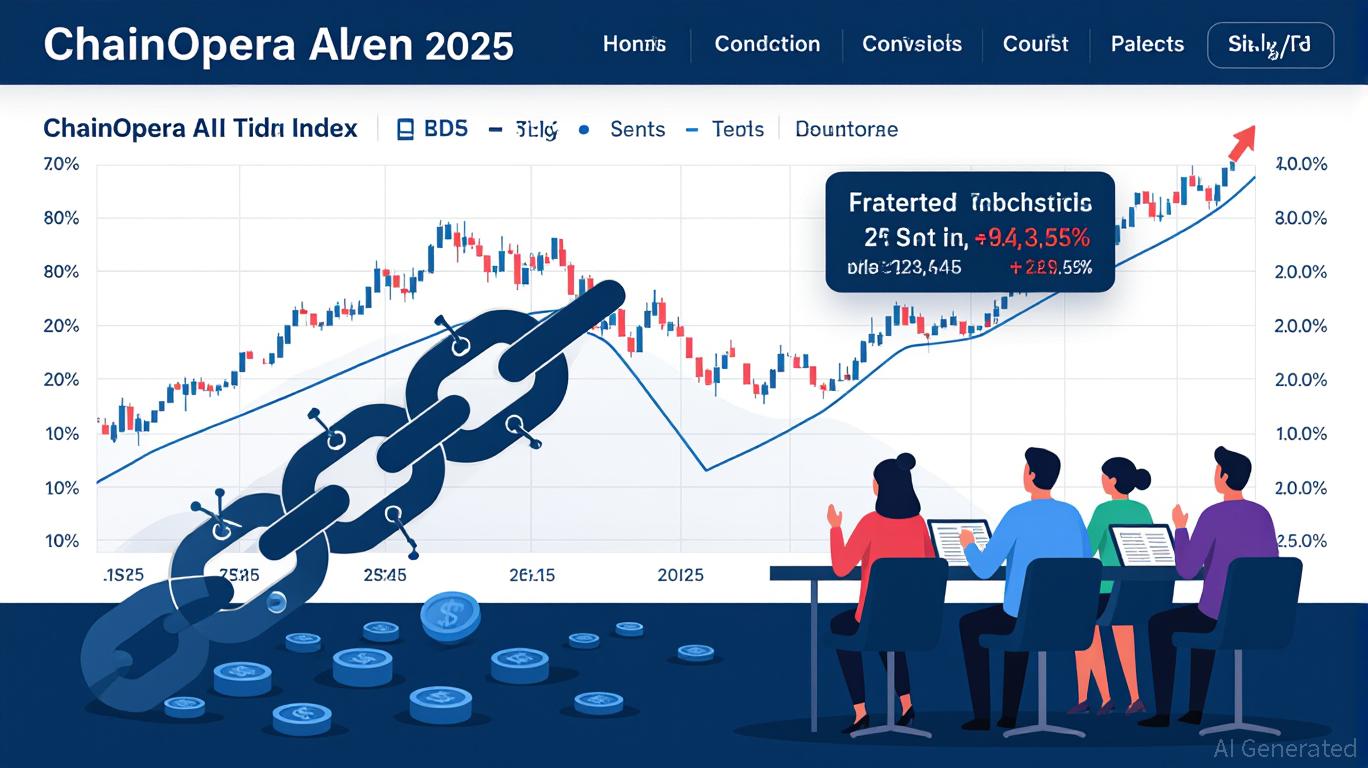Operational challenges and disagreements among investors have cast uncertainty over Cloud IP's projections for 2028
- International Paper (IP) reports $1.1B Q3 loss despite $6.22B sales, with 2025 net sales projected at $24B amid mill reliability challenges. - Extended Sylvamo supply agreement through 2026 highlights asset optimization but raises execution risks as Riverdale Mill conversion threatens supply chain stability. - Institutional investors show mixed stances: Resona increased 9.5% stake while BMO cut holdings by 26.5%, reflecting uncertainty over -381.30 P/E ratio and 4.9% dividend yield. - Analysts remain spl
International Paper Co. (NYSE: IP) is at a critical juncture, reporting a third-quarter net loss of $1.10 billion despite an increase in sales to $6.22 billion. The updated 2025 forecast anticipates net sales reaching $24 billion, as

Institutional investors have shown varied responses to IP’s stock. Resona Asset Management Co. Ltd. boosted its position by 9.5% in the second quarter, now holding 176,010 shares valued at $8.26 million. In contrast, Bank of Montreal Can reduced its stake by 26.5%, selling 95,504 shares and retaining 265,164 shares worth $12.42 million, according to
Operational issues continue to be a concern. Sylvamo’s plan to convert the No. 16 paper machine at Riverdale Mill to produce containerboard by the third quarter of 2026 could disrupt IP’s supply chain. Sylvamo’s CEO has stated this move does not align with their long-term strategy, according to
The stock began trading at $38.13 on November 7, 2025, remaining below its 52-week peak of $60.36. With institutional investors holding 81.95% of shares, market sentiment is cautious, weighing optimism about sustainable packaging against doubts over margin recovery, as
Disclaimer: The content of this article solely reflects the author's opinion and does not represent the platform in any capacity. This article is not intended to serve as a reference for making investment decisions.
You may also like
U.S. Debt Fluctuations Surge Amid AI-Driven Borrowing Growth and Fed Faces Fiscal Uncertainty
- U.S. Debt Volatility Index hits one-month high in November, reflecting market anxiety amid government shutdown resolution and fiscal risks. - AI infrastructure debt surges 112% to $25B in 2025, driven by tech giants’ $75B in bonds for GPU/cloud projects, raising overleveraging concerns. - Fed faces mixed signals: October job losses push December rate cut odds to 68%, while gold/silver rise 2-3% as investors seek safe havens amid fiscal/geopolitical risks. - Delayed economic data from shutdown complicates

ChainOpera AI Token Plunge: An Alert for Investors in AI-Based Cryptocurrencies
- ChainOpera AI Index's 54% 2025 collapse exposed systemic risks in AI-driven crypto assets, driven by governance failures, regulatory ambiguity, and technical vulnerabilities. - C3.ai's leadership turmoil and $116.8M loss triggered sell-offs, while the CLARITY Act's vague jurisdictional framework created legal gray areas for AI-based crypto projects. - Model Context Protocol vulnerabilities surged 270% in Q3 2025, highlighting inadequate governance models as 49% of high-severity AI risks remain undetected

Navigating the Dangers of New Cryptocurrency Tokens: Insights Gained from the COAI Token Fraud
- COAI token's 2025 collapse exposed systemic risks in algorithmic stablecoins, centralized governance, and fragmented regulatory frameworks. - xUSD/deUSD stablecoins lost dollar peg during liquidity crisis, while 87.9% token concentration enabled panic selling and manipulation. - Regulatory gaps pre-collapse allowed COAI to exploit loosely regulated markets, but post-crisis reforms like MiCA and GENIUS Act now demand stricter compliance. - Investor sentiment shifted toward transparency, with demand for re

Filecoin (FIL) to Bounce Back? This Emerging MA Fractal Setup Suggests So!
